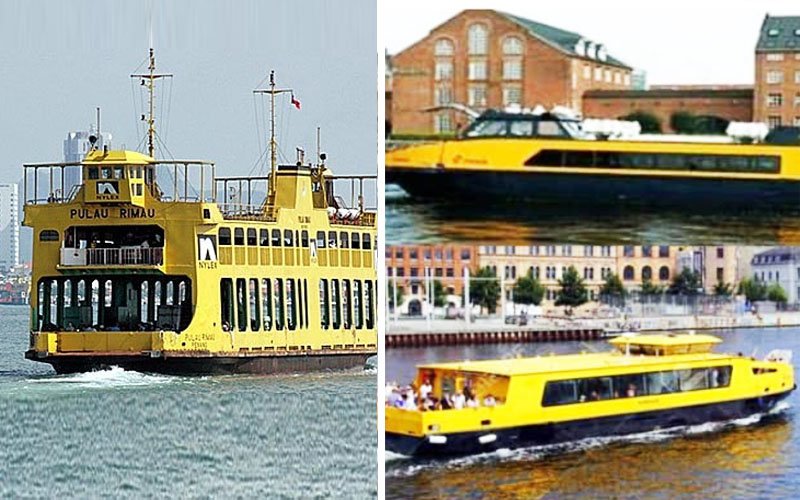GEORGE TOWN: Penang’s iconic ferries are going to be retired before they are replaced by “fast ferries” similar to the ones used in Langkawi from Jan 1.
With this move, commuters using cars to travel between the mainland and the island will no longer be able to use the ferry, instead of the two bridges.
One of the last two vessels will cease operation on Dec 31 and the other will be retained to transport just motorcycles and bicycles until newer vessels are put in service.
By mid-2022, five new vessels – three “water buses” and two transporters for motorcycles and emergency vehicles – will be introduced at a cost of RM64 million. The cost includes upgrades to the terminals on the island and mainland.
The new vessels would increase the reliability of the cross-channel service, and shorten travel time from about 20 minutes to 10 minutes, Penang Port Commission (PPC) said at a press conference today. The service would run at an interval of 20 to 30 minutes.
The commission also said the last two remaining vessels – Pulau Talang Talang and Pulau Angsa – will be turned into a floating museum and a restaurant.
PPC chairman Tan Teik Cheng said it was looking for interested parties to submit their proposals and would consider other purposes for the vessels as well.
He said, however, that both ferries, which are believed to be about 40 years old, would remain docked at the Tanjung City Marina in George Town.
Tan said the decision to retire the old ferries was simply due to age and cost because spare parts for the engines had to be purchased from Germany and Sweden.
“With the lockdown, it was difficult to obtain these parts. So, every morning, I pray hard that these two old ferries don’t break down.
“I also pray the phone does not ring to give me news that the ferry had broken down,” he said, adding that it would have cost over RM2 million to repair and overhaul one ferry.
Tan said the rationale in doing away with ferries transporting cars was that the two bridges are readily available and the majority of 1.2 million out of 1.5 million ferry users per year were pedestrians.
He said the finance ministry has given RM30 million to Penang Port Sdn Bhd (PPSB), the company licensed by PPC to run the state’s ports, to buy the new vessels and to upgrade terminals on both ends. The remainder sum of RM34 million is to be borne by the company.
In giving details of the upgrade, PPSB CEO Sasedharan Vasudevan said it had commissioned a naval architect to come up with the design of the new water buses, to be modelled after the one in Amsterdam.
He said both ferry terminals in George Town and Butterworth would be closed for the time being to allow it to be modified to fit the new water buses and “water wheelers” (vehicle transporters) later.
For the time being, he said, those who would like to take the water ferries would have to use the present cruise terminal at the Swettenham Pier at King Edward Place. A new bus stop would be built near the pier.
On the Butterworth side, a pontoon would be put up adjacent to the existing ferry terminal to help in the transfer of passengers. Shuttle services for the elderly, disabled, and expectant mothers would be provided on both sides.
Sasedharan said the new water buses would fit 200 passengers at any one time and 100 motorcycles through vehicle transporters. He said the water bus would have speeds of 12 to 15 knots (22-27km/h) compared with the seven to eight knots for the old ferries.
Tan said the fares would remain the same for now, until the water ferries are introduced. The fare for adults is RM1.20, but it is half-price for children, senior citizens and the disabled.
“However, these prices may be subject to change as SPPP (Penang Port Commission) sees fit, determined by a consultative meeting with stakeholders and later referred to the transport minister.”

